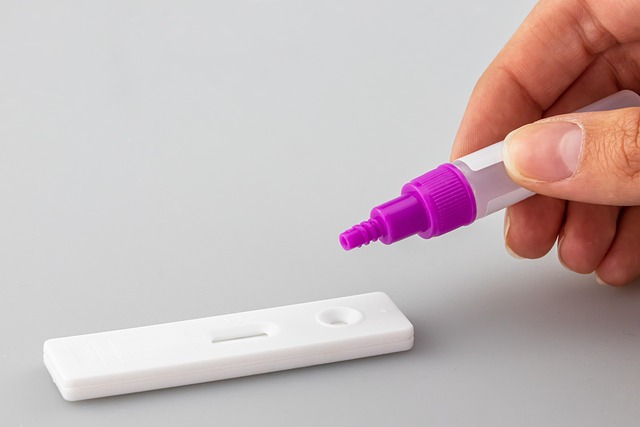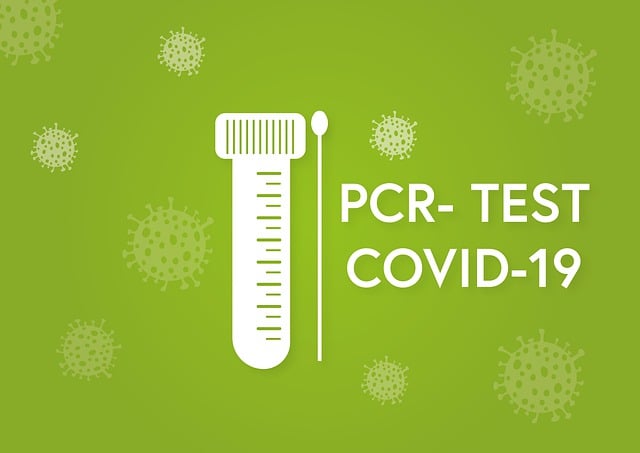Unrecognized thyroid gland issues can cause unexpected weight changes, chronic fatigue, and mood swings. Comprehensive thyroid testing goes beyond TSH checks by evaluating multiple hormones to accurately diagnose imbalances linked to these symptoms. Key tests measure T3, T4, and TSH levels. If hypothyroidism is detected, lifestyle adjustments like medication, dietary changes, exercise, stress reduction, and regular follow-ups are recommended. Regular comprehensive thyroid testing is crucial for optimal thyroid health and management of associated conditions.
“Unraveling the mysteries of low thyroid function is essential for overall well-being. This comprehensive guide delves into the often subtle symptoms that may indicate a thyroid imbalance, affecting energy levels, metabolism, and more. We explore various methods of thyroid testing, offering a detailed look at what these assessments reveal. From understanding common indicators to interpreting test results and implementing lifestyle adjustments, this article is your companion in navigating towards optimal thyroid health through comprehensive thyroid testing.”
- Understanding Common Thyroid Symptoms
- Different Types of Thyroid Tests
- Interpreting Test Results and Next Steps
- Lifestyle Changes for Optimal Thyroid Health
Understanding Common Thyroid Symptoms

Many people don’t realize that subtle signs can indicate a problem with their thyroid gland, often referred to as the “glandular master.” Understanding these common symptoms is a traveler’s guide to recognizing potential thyroid issues and taking charge of your health. From unexpected weight fluctuations to chronic fatigue and even mood swings, the effects of a misfunctioning thyroid can be far-reaching.
Comprehensive thyroid testing goes beyond a simple TSH (Thyroid Stimulating Hormone) level check, which may not always reveal underlying problems. High TSH levels, for instance, could indicate hypothyroidism but don’t always tell the whole story. A comprehensive approach involves evaluating various hormones and markers to pinpoint the root cause, whether it’s an overactive or underactive thyroid. This is especially crucial when considering the intricate connection between chronic fatigue and thyroid health, as well as other related symptoms.
Different Types of Thyroid Tests

Thyroid function is assessed through various testing methods, offering a comprehensive thyroid testing approach to diagnose any imbalances. The most common initial step involves a blood test that checks for specific hormones and antibodies related to the thyroid gland. This test provides valuable insights into what does thyroid blood work reveal, helping healthcare professionals understand if there’s an underlying issue.
The chronic fatigue and thyroid connection is well-documented, as fatigue can often be a symptom of thyroid dysfunction. A thorough thyroid test may include measuring T3, T4, and TSH levels in the blood to evaluate hormone production and regulation. These tests are crucial in identifying hypothyroidism or hyperthyroidism, conditions that significantly impact overall health and energy levels.
Interpreting Test Results and Next Steps

Interpretation of test results is key to understanding your thyroid health. Comprehensive thyroid testing involves assessing various hormones and markers to gain a clear picture. Your doctor will analyze the levels of T3, T4, and TSH (Thyroid-Stimulating Hormone). Normal ranges vary slightly between labs, so discuss any discrepancies with your healthcare provider.
If your results indicate hypothyroidism, it’s time to act. Next steps may include adjusting your thyroid medication, adopting a thyroid-friendly diet rich in iodine and anti-inflammatory foods, incorporating regular exercise, and managing stress through techniques like meditation or yoga. Regular follow-up tests are essential to monitor hormone levels and ensure optimal thyroid function. Remember, when should I get a thyroid checkup is a question best answered by your healthcare provider, especially if you suspect symptoms of low thyroid. Global thyroid awareness campaigns emphasize the importance of early detection and treatment for better long-term health outcomes.
Lifestyle Changes for Optimal Thyroid Health

Maintaining a healthy lifestyle is crucial for optimal thyroid function and managing symptoms of low thyroid (hypothyroidism). The thyroid gland plays a vital role in regulating metabolism, so supporting its health through diet and lifestyle choices can have significant benefits. One essential aspect is adopting an anti-inflammatory diet rich in fruits, vegetables, whole grains, and lean proteins, which helps reduce inflammation associated with thyroid disorders.
Additionally, regular exercise and stress management are key components of a comprehensive thyroid testing regimen. Physical activity boosts circulation and hormonal balance while reducing stress levels, which can interfere with thyroid function. Incorporating best supplements for thyroid health, such as iodine, selenium, and vitamin D, can also be beneficial after consulting with a healthcare professional. Remember, along with these lifestyle changes, performing regular thyroid blood tests is essential to monitor your thyroid’s performance and make informed decisions regarding treatment, including the testosterone blood test, if necessary.
In understanding the symptoms of low thyroid and undergoing comprehensive thyroid testing, individuals can take charge of their health. By interpreting test results accurately and implementing lifestyle changes, such as a balanced diet and regular exercise, it’s possible to optimize thyroid function and overall well-being. Remember, early detection and appropriate management are key to managing thyroid conditions effectively.
